

Dr. Simone Mayer (Hertie Institute for Clinical Brain Research) initiated the third NCI "The Developing Brain" in July 2019.
The brain, one of the most complex structures in nature, undergoes rapid and complex changes during embryonic and fetal life that reach far into postnatal development. Additionally, the maternal brain changes during gestation. Recent technical developments in neuroscience have brought closer together basic neurodevelopmental research and clinical neurosciences, since life history may shape disease susceptibility and progression in adulthood and senescence. Several research groups with an interest in different aspects of brain development and plasticity are spread through TNC member institutions. This Neuro Campus Initiative aims to raise awareness for developmental neuroscience questions within the TNC and provide a platform for exchange that fosters collaborations with the long-term goal of strengthening a developmental neuroscience research focus within the TNC.
Prof. Dr. Birgit Derntl (Department of Psychiatry and Psychotherapy, UKT)
Annica Dörsam (Arbeitsbereich Psychobiologie des Essverhaltens, Abteilung Innere Medizin VI, Psychosomatische Medizin und Psychotherapie)
Dr. Louise Fritsche (Klinisches Studienzentrum der Medizinischen Klinik IV)
Prof. Dr. Katrin Giel (Arbeitsbereich Psychobiologie des Essverhaltens, Abteilung Innere Medizin VI, Psychosomatische Medizin und Psychotherapie)
PD Dr. Samuel Gröschel (University Children''s Hospital, Department of Neuropediatrics)
Prof. Dr. Manfred Hallschmid (Institute for Medical Psychology and Behavioural Neurobiology, UKT)
Prof. Dr. Karl Oliver Kagan (Universitäts-Frauenklinik, UKT)
Prof. Dr. Ingeborg Krägeloh-Mann (University Children''s Hospital, Department of Neuropediatrics)
Dr. Simone Mayer (Hertie Institute for Clinical Brain Research)
Prof. Dr. Hubert Preißl (fMEG Center / Institute for Diabetes Research and Metabolic Diseases of the Helmholtz Center Munich at the University of Tübingen)
Dr. Katharina Zinke (Institute of Medical Psychology and Behavioural Neurobiology Tübingen)
Simone Mayer is always looking for collaborations. So if you are interested in this topic, feel free to contact her: si.mayer@uni-tuebingen.de
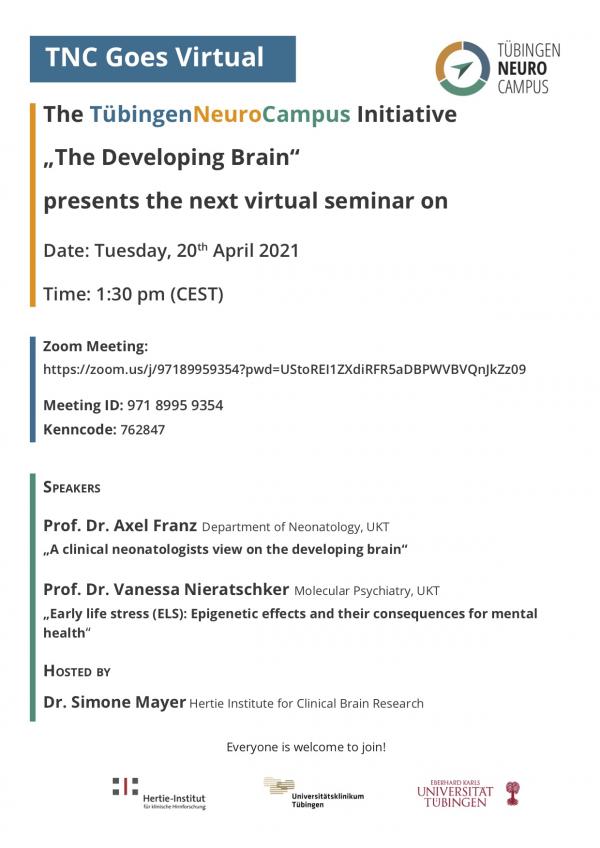
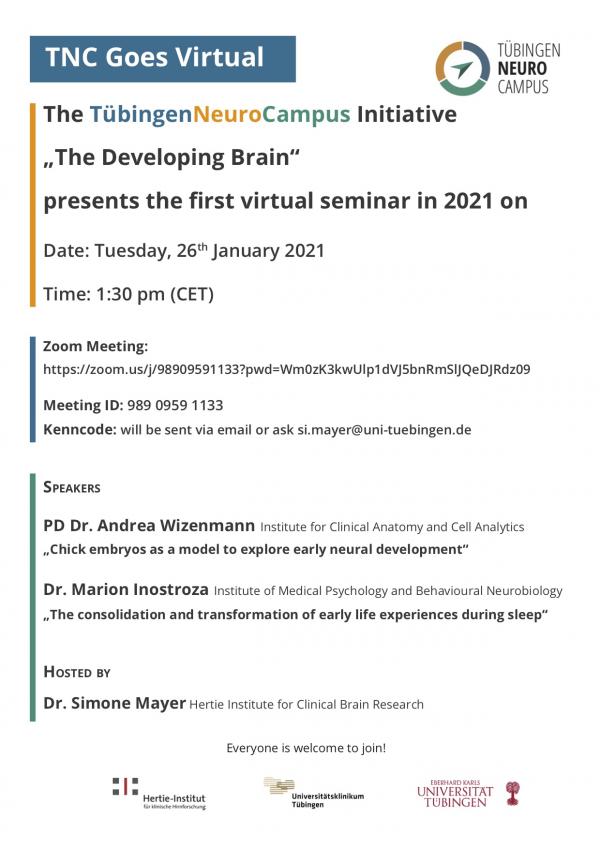
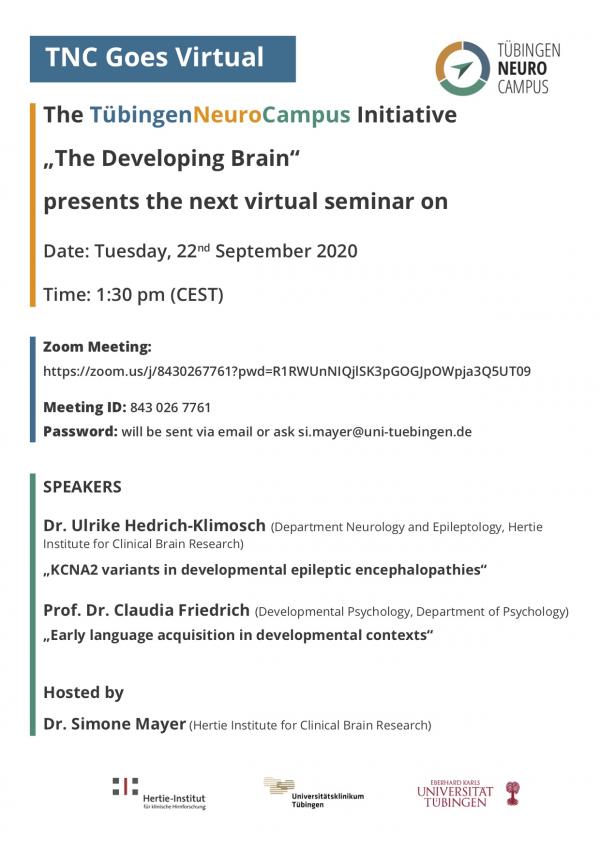
Simone Mayer organized a TNC talk, which took place on Thursday, July 2.
The recorded Zoom Meeting can be found here:
https://hih-oc.neurologie.uni-tuebingen.de/s/C7XwEm3edEAwZaJ
To get the password, please send an email with "TNC Talk 2.7." to silke.dutz@medizin.uni-tuebingen.de
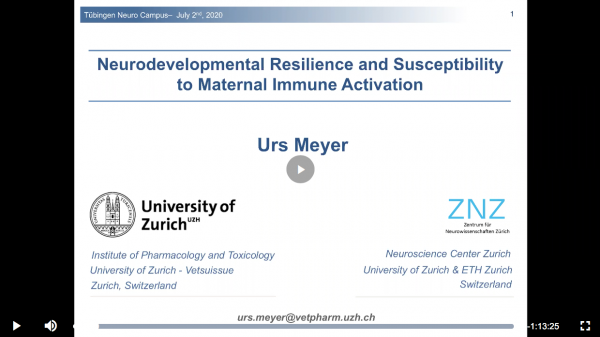
The first virtual seminar took place on Tuesday April 21.
The recorded Zoom Meeting can be found here:
https://hih-oc.neurologie.uni-tuebingen.de/s/MjFjoRGqgECwdKw
To get the password, please send an email with "TNC Seminar 21.4." to silke.dutz@medizin.uni-tuebingen.de
The program:

Past events with a live audience:
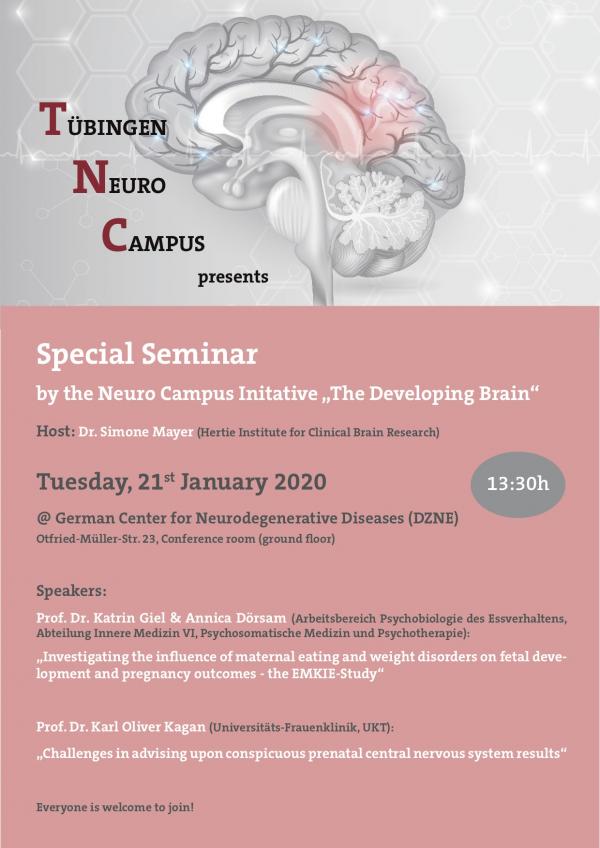
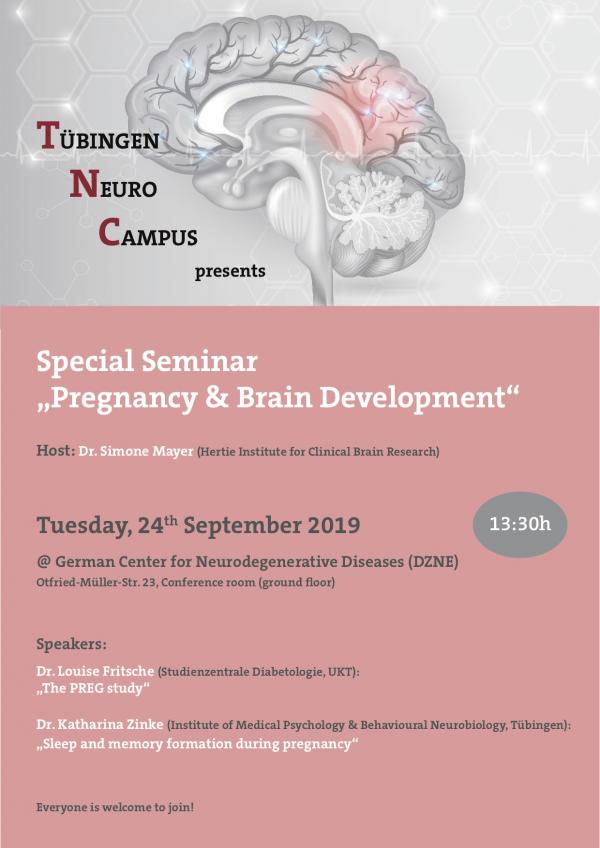

Tübingen is a special place for research. Very few locations offer such a wide range of research areas in such close proximity - both physically and figuratively. Not only are all of Tübingen's research institutions just a stone's throw away from each other, they also collaborate closely within the Tübingen Research Campus.
Visit page
Life in Tübingen is life in the heart of Europe and in one of Germany's most scenic and economically competitive regions. It's a bustling mediaeval town with a young, international, and vibrant population and a rich cultural and artistic scene. Lectures, concerts, film festivals, and more: life in Tübingen never gets boring.
Visit page
The Neurosciences in Tübingen with more than 100 active research groups have the potential to rank among the most successful neuroscientific sites in Europe.
Visit page